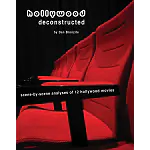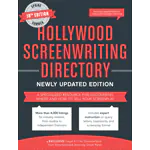Vary your Movie Script Locations
In your everyday life, do you sit in one spot and talk to everybody you meet in that same place? Okay, maybe you do but unless that’s the point…
Getting into a routine can help with screenwriting
You might be desperate to get your screenwriting ideas noted down and formed into a completed work. After all, if you are successful, you may reap considerable rewards both…
Conflict is the Key to Writing a Good Story
Nothing in life is easy, so why should “movie life” be any different? Whether you are writing a drama based on true life events or a science fiction movie…
Stick to your strengths when screenplay writing
If you want to make it big in the world of professional screenwriting, you are by no means alone. Whether you are a student of creative writing or a…
Formatting is crucial in screenplay writing
When you sit down to create a screenplay, there are many issues you have to bear in mind. Indeed, the process can be daunting. But as long as you…



